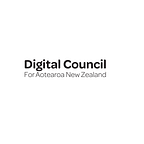Announcing Research Partners: Brainbox Institute & Toi Āria
By Marianne Elliott and Colin Gavaghan, Digital Council research leads.
On behalf of the Digital Council, we’re pleased to announce the Council is partnering with the Brainbox Institute and Massey University’s Toi Āria: Design for Public Good to carry out this year’s major research project into automated decision-making.
Automated decision-making
In May, we announced this year’s research topic: automated decision-making as a case study in trust.
In simple terms, automated decision-making uses computers to help people make decisions.
Many of us encounter automated decision-making already. For example, when our favourite television or music streaming service recommends something for us to watch or listen to, based on what it believes about our tastes. It can also be used for more important reasons such as to determine whether or not we’re entitled to payment from a government agency such as ACC.
We believe researching automated decision-making (or ADM) will help us uncover important insights into trust and trustworthiness, while adding value to what’s being done in this area.
What’s happening now
Right now, the team at Brainbox Institute has started a literature review to provide Toi Āria with some of the insight and data they need to develop a programme of participatory research.
The participatory research, while still in the design phase, is likely to include exploration of key themes, as well as a series of focus groups and interviews.
Interviewees will cover a wide cross-section of New Zealanders such as disabled people, Māori and Pasifika peoples, people reliant on government assistance, the business sector, students, government service designers, academics and people from the LGBTQI+ and gender diverse communities.
Proposed focus group themes and questions
The sorts of themes Toi Āria is looking to cover, include:
- what sorts of automated decision-making systems do we already encounter and what are we likely to encounter in the future ?
- what have been suggested as the advantages and risks of such systems?
- what sort of steps have been taken or could be taken to make sure automated decision making systems are trusted and trustworthy?
- what makes the systems and institutions that use automated decision making more or less trustworthy?
Meanwhile, some of the questions Toi Āria researchers are likely to ask in interviews and focus groups, include:
- how is automated decision-making used in New Zealand?
- do people trust computers to make decisions for them?
- what concerns people most when it comes to computers using algorithms to make decisions?
- in what situations would someone prefer a decision to be made by a human?
Stakeholder engagement
As part of the research project, the Digital Council also plans to stimulate discussion and get more general feedback on automated decision-making through its stakeholder engagement work, which is now under way.
Read the research
We expect to publish early insights into our research project in late July, followed by a major report to government Ministers in December.
Get involved
If you would like to be involved in the research project — either as a participant in Toi Āria’s focus groups and interviews or as a Digital Council stakeholder engagement event attendee — please email us at: info@digitalcouncil.nz
We look forward to hearing from you and keeping people updated on the Council’s major research programme.
